A Universe in a Book
"I'm proud of how much life and color I was able to jam into a book about unassuming brown wrinkly fruit."
A couple of weeks ago, I went to the launch party for Lucinda Scala Quinn’s new cookbook Mother Sauce at Archestratus, a gem of a culinary bookstore in Brooklyn. Dan (Grossy) Pelosi was interviewing Lucinda. At some point in the conversation she said, “A cookbook should be an experience,” and I heard a little “ding! ding! ding!” in my brain.
We can get recipes anywhere these days, sometimes even good ones. To earn its spot in our increasingly cluttered (in all the ways) lives, a cookbook should feel different, special. Maybe it’s the niche subject, the author’s unique voice, or the book’s visuals, but it shouldn’t feel generic. Mother Sauce is an experience for sure, and those are the types of books I want to focus on here at Cookbookery Collective.
What’s a cookbook you consider an experience? Let’s discuss in the comments.
No book I’ve seen recently is more of an experience than Hot Date! (Bookshop/Amazon) written and illustrated by Rawaan Alkhatib. The first word that came to mind when I looked at it is an old-fashioned one: sumptuous. Turning the pages is like stepping into a lush, maximalist world.
To understand the book it helps to know more about Rawaan, a writer and cook of Palestinian and Indian heritage who lives in Brooklyn. Rawaan was raised in Dubai, UAE, where, in her words, she grew up experiencing “firsthand the warmth and generosity of a date-centric culture.” Rawaan holds an MFA in poetry from the Iowa Writers’ Workshop (!), she works full-time at a museum exhibit design studio, and, as you’ll see when you page through the book, she makes beguiling art.
It’s hard to do justice to Hot Date! in words. (Kudos to Chronicle for going all in on this one.) The edges are sprayed hot pink. Some of the recipes are illustrated by Rawaan; some are photographed by Linda Xiao, with food styling by Monica Pierini and prop styling by Maeve Sheridan (the dream team behind Bare Minimum Dinners!). Interspersed with the recipes are poems that mention dates, ancient recipes that feature the fruit (including a Roman one for flamingo), and scientific and cultural insights.
Since it is such a unique cookbook, I was especially excited to hear from Rawaan on how she thinks about the genre. She also shared a recipe.
The Cookbookery Q&A with Rawaan Alkhatib
How many cookbooks do you own?
RA: About 150 including text-only/non-visual cookbooks, along with many more periodicals (every issue of Lucky Peach, a bunch of Gastronomica back issues, some prized Donna Hay magazines).
How did Hot Date! come to be?
RA: I learned to cook from cookbooks, and have been obsessed with the idea of making my own for many years. In my day job as a content developer at a museum exhibit design firm, I spend a lot of time thinking about different ways of learning and instructional text and the balance of visuals and words when it comes to teaching people something new. I was interested in ways to push at the form of the cookbook and see how much it could hold — how like and unlike a museum it could be. How much could I load it up with to create texture and layers, to create its particular universe?
With over 7,000 years of date palm cultivation and culture, I had a deep well to draw from. Ancient recipes, poetry, visual culture... and I have always loved dates. My parents have date palms in their garden and they were very much a part of the culinary landscape for me. I was genuinely shocked to realize that there was no cookbook out there that considered the date holistically, from both a sweet and savory perspective.
What was the hardest part about making Hot Date?
RA: Balancing my occasionally delusional ambition against practical reality. I was making it alongside an intensive day job and parenting a very young child, and there ended up being limits to how much I could draw or paint or recipe test.
What is the first cookbook you remember cooking out of?
RA: A kids’ cookbook, which I found a few years ago at my parents’ house and am hoping to revisit with my kid soon. I remember flipping through the pages and imagining what the dishes with more exotic ingredients would taste like. (Exotic had a different cast in Dubai in the early 1990s — a sausage pie looked so otherworldly and delicious.) I was also obsessed with the infamous Australian Women’s Weekly cake book. The photos here are from a newer edition I bought after my son was born. I tried to replicate the swimming pool cake as a kid but never succeeded.
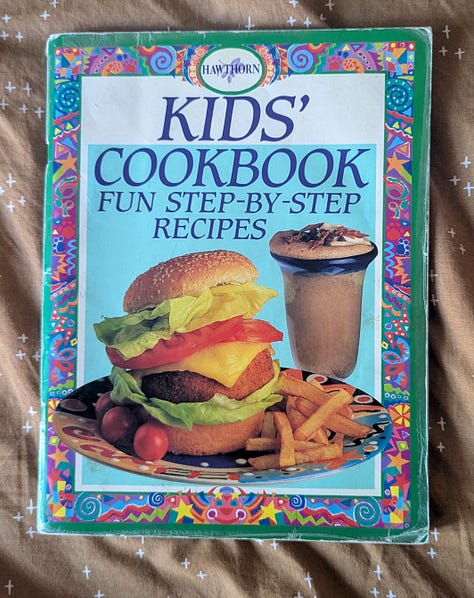


What kind of cookbook reader/user are you?
RA: One who reads cookbooks in bed, cover to cover, but who also gets them messy in the kitchen. Even if I’m not making all the recipes, I’m learning about technique and context and ingredients.
What cookbook(s) do you regularly gift?
RA: One of the first cookbooks I bought myself was The Arab Table (Bookshop/Amazon) by May S. Bsisu. As a young college student in the US, I wanted to access the tastes of home for myself and my friends. It’s a beautifully written, comprehensive cookbook of Shami, or Levantine, Arab recipes. I love it and gift it to anyone looking to learn more about Middle Eastern cuisine. Bsisu is Palestinian but spent formative years in the Arabian Gulf; she now lives in Ohio. Her palate is calibrated so that her recipes taste “right” to me, but her ingredient base is largely available at North American grocery stores, which makes the recipes feel very accessible. It’s such a warm and generous book.
What is one cookbook you read, but don’t cook from?
RA: Anything by Nigel Slater! I love his prose and read his books as bedtime stories, but his recipes are so flexible and jazz-riffy that I don’t feel the need to actually follow them—they’re useful jumping-off points for whatever I have on hand in my pantry.
What is a cookbook that changed the way you cook?
RA: Although I’m less likely to go for the cheffy restaurant hagiography these days, some particularly formative cookbooks include Momofuku (Bookshop/Amazon) by David Chang with Peter Meehan, Eat With Your Hands (Amazon) by Zak Pelaccio with J. J. Goode, and The Big Fat Duck Cookbook (Amazon) by Heston Blumenthal. [JH note: Neither of these last two are available on Bookshop, and the latter is going for $317 on Amazon!]
I also owe a lot to the cookbooks of Fuchsia Dunlop and Harumi Kurihara, who both introduced me to a world of new techniques and cultures in ways that I could replicate, with dedication, in my home kitchen.
What is a cookbook that totally transports you?
RA: I have been loving Rambutan: Recipes from Sri Lanka (Bookshop/Amazon) by Cynthia Shanmugalingam recently. It’s cold and grey outside and the recipes have been pinging all the dopamine receptors in my brain. It inspired me to purchase a little curry leaf plant for my windowsill, so I can make any of the dishes at the drop of a hat. Try the plantain curry! It’s so good!
What is a cookbook that you find supremely beautiful?
RA: For the beauty and clarity of their prose, and the deliciousness of the food: The Complete Nose to Tail (Bookshop/Amazon) by Fergus Henderson and Vibration Cooking (Bookshop/Amazon) by Vertamae Smart-Grosvenor. I love it when the author’s personality comes through, when you can sense how and why they make the decisions they do in the kitchen.
For visual beauty: The Big Fat Duck Cookbook (I have the original edition in the slipcase; it’s too big for my cookbook shelves but the illustrations by Dave McKean are so gorgeous). And of course A Cookbook [JH note: This one is selling for nearly $2,000 on Amazon!], the legendary Dorothy Iannone’s cookbook-slash-artwork-slash-confessional diary.
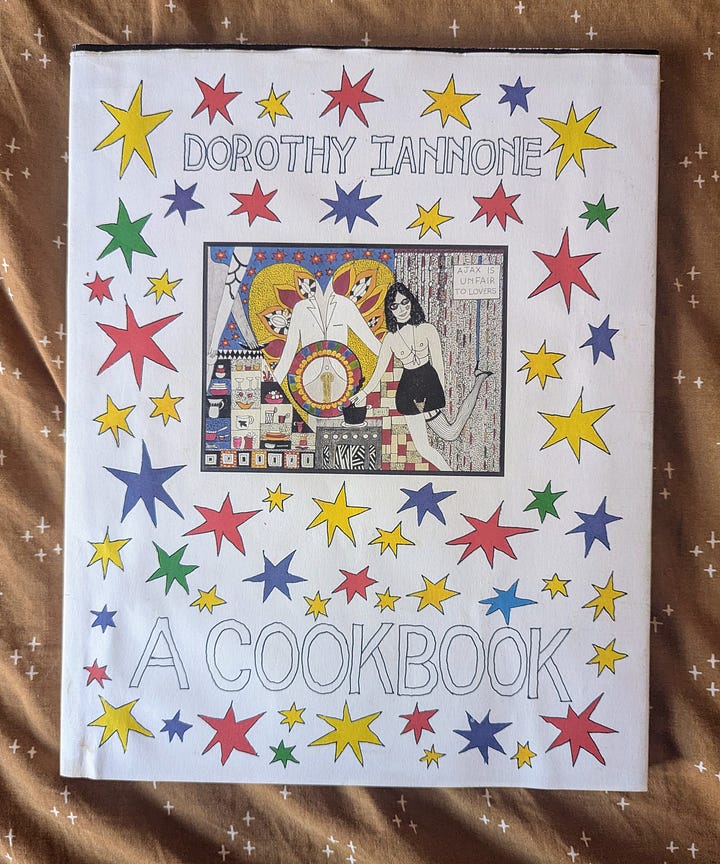
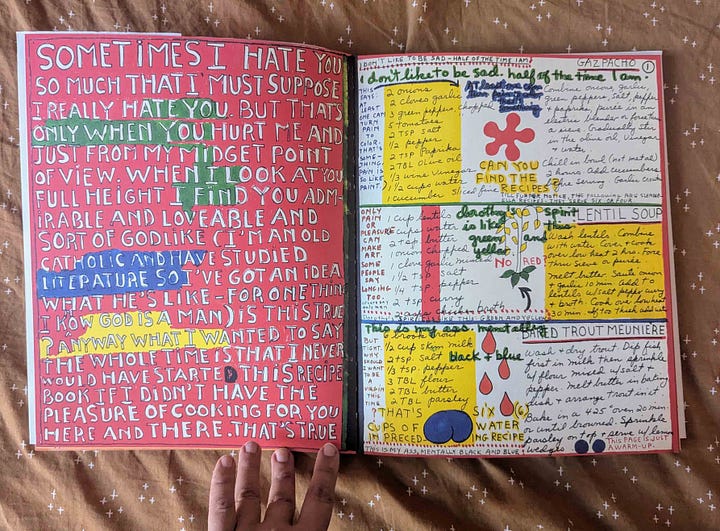
What is one thing you’re proud of about Hot Date?
RA: The writing! I wanted Hot Date! (Bookshop/Amazon) to be a cookbook you could read from cover to cover and whenever possible took the opportunity to make every headnote or pantry ingredient write-up a little gem. I hope readers agree that it strikes the right balance of fun to read and easy to use as an instruction manual. I’m also proud of how much life and color I was able to jam into a book about unassuming brown wrinkly fruit.
Interview has been lightly edited. If you purchase a book through one of these links, I may receive a small commission.
Recipe: Chocolate Olive Oil Date Toasts
A MOUTHFUL FOR 12 (MULTIPLIES EASILY )
All the pleasure of a pain au chocolat, none of the hard work. The contrast of the bitter olive oil and just-warm dark chocolate against the sweet date, the crunchy salt, and the soft bread deliver an entire universe in a single bite: peak party food, a lovely mouthful to passaround at any point in the proceedings. This melange was inspired by an Amanda Hesser recipe in the New York Times that I’ve kept in my back pocket for the last twenty-odd years, ready to unleash upon any last-minute gathering. Prep everything while your oven heats, plop it in just long enough for the flavors to come together, and you’re feeding people in fifteen minutes.
3 large soft dates, such as Medjools
1 fresh baguette, cut into 12 thin slices
12 thin pieces very good dark chocolate, each about 1 in [2.5 cm] square
Your best extra-virgin olive oil
Flaky sea salt, like Maldon
Preheat the oven to 350°F [180°C]. Cut the dates lengthwise in half, then in half again to give you four long pieces per date.
Arrange the baguette slices in a single layer on a baking sheet. Top each slice with a piece of chocolate and a slice of date. Drizzle each piece with a little olive oil and sprinkle with a few flakes of salt. Slide the baking sheet into the oven for just a few minutes, until the chocolate starts to lose its sharp edges and begins to slump but is not actually melting, and the dates are warm but not hot. This should take no longer than 5 minutes, probably less. Remove from the oven and transfer to a serving platter, then up the ante with a fresh application of olive oil and salt. Serve right away.
Excerpted from Hot Date: Sweet & Savory Recipes Celebrating the Date, From Party Food to Everyday Feasts by Rawaan Alkhatib, © 2025. Published by Chronicle Books. Photographs © Linda Xiao.
More to Nibble On
Molly Yeh made me (well, REAL SIMPLE) a cake!





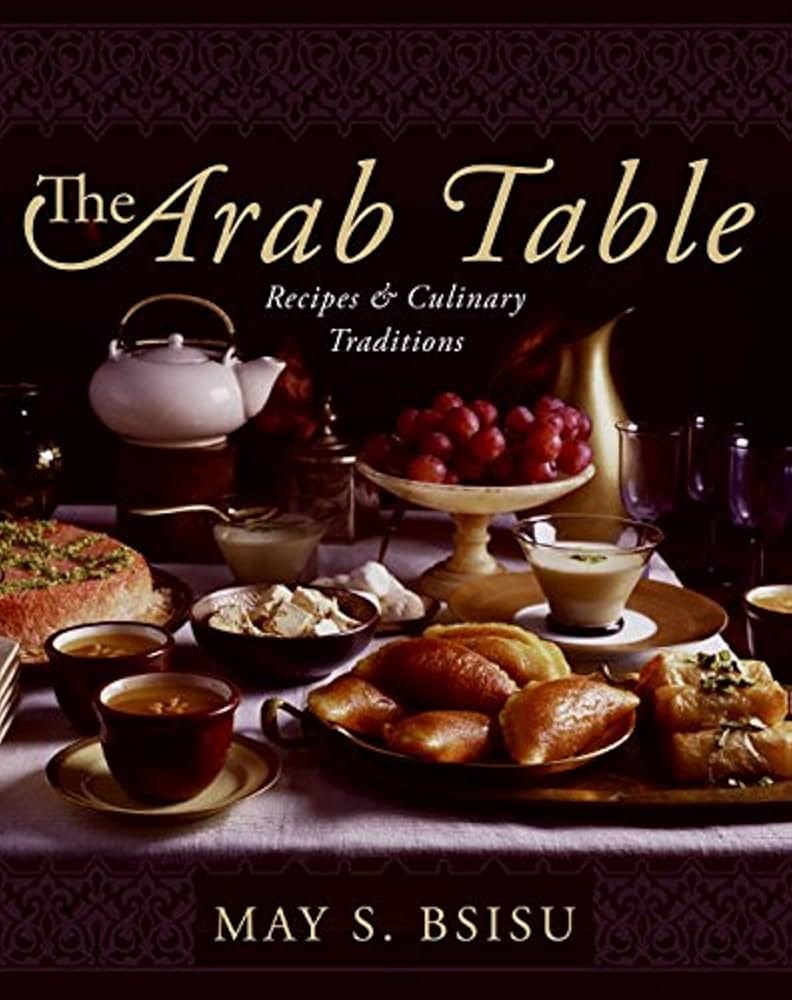
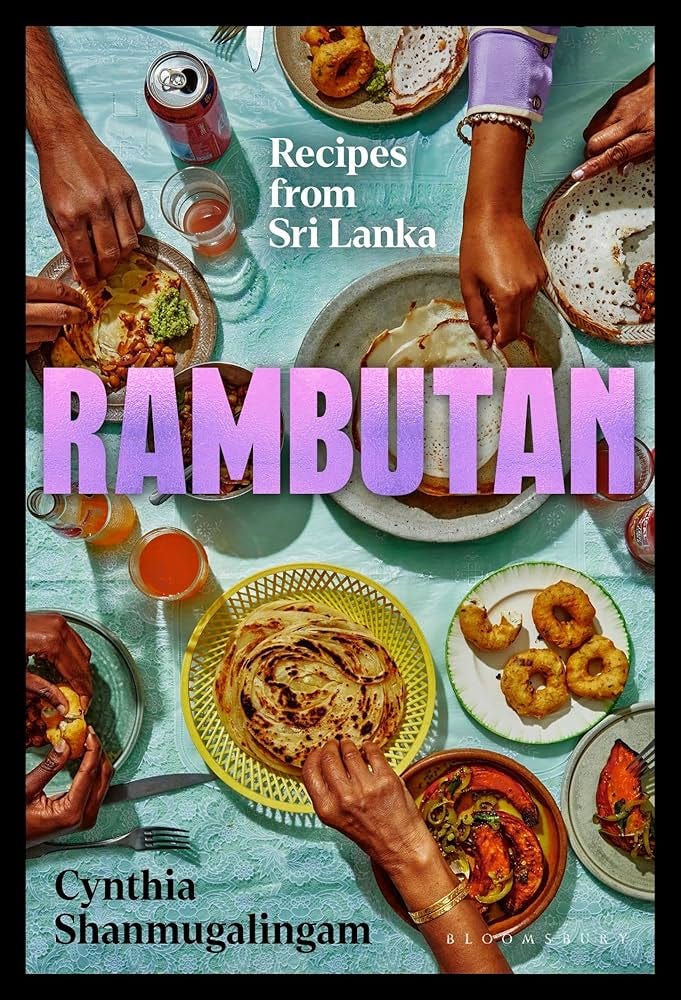
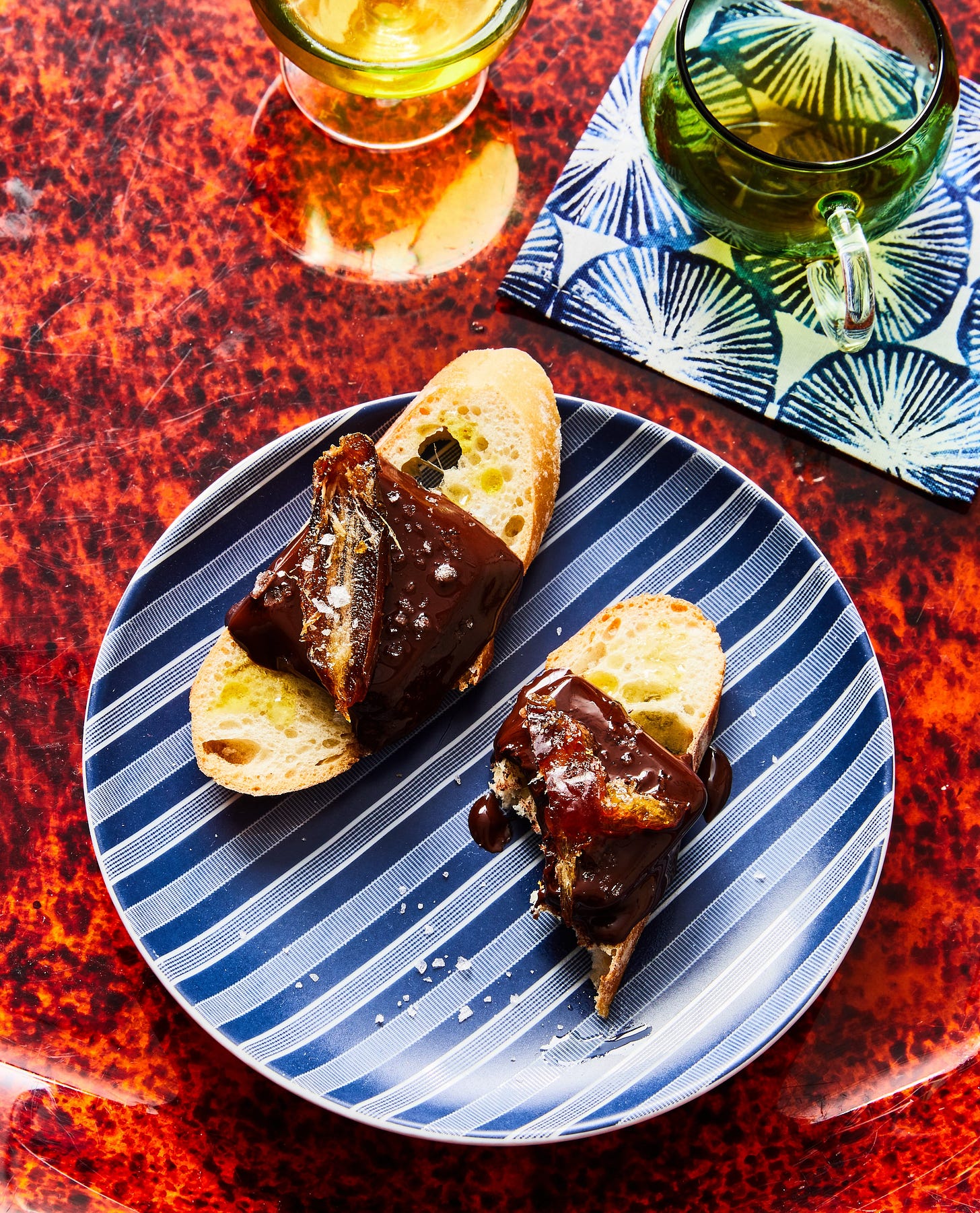
This interview is SUCH a delight -- I absolutely love this book, too.
I taught myself to cook from Nigel Slater’s books. I love his unique style of writing too - it’s interesting to read your perspective of his work.